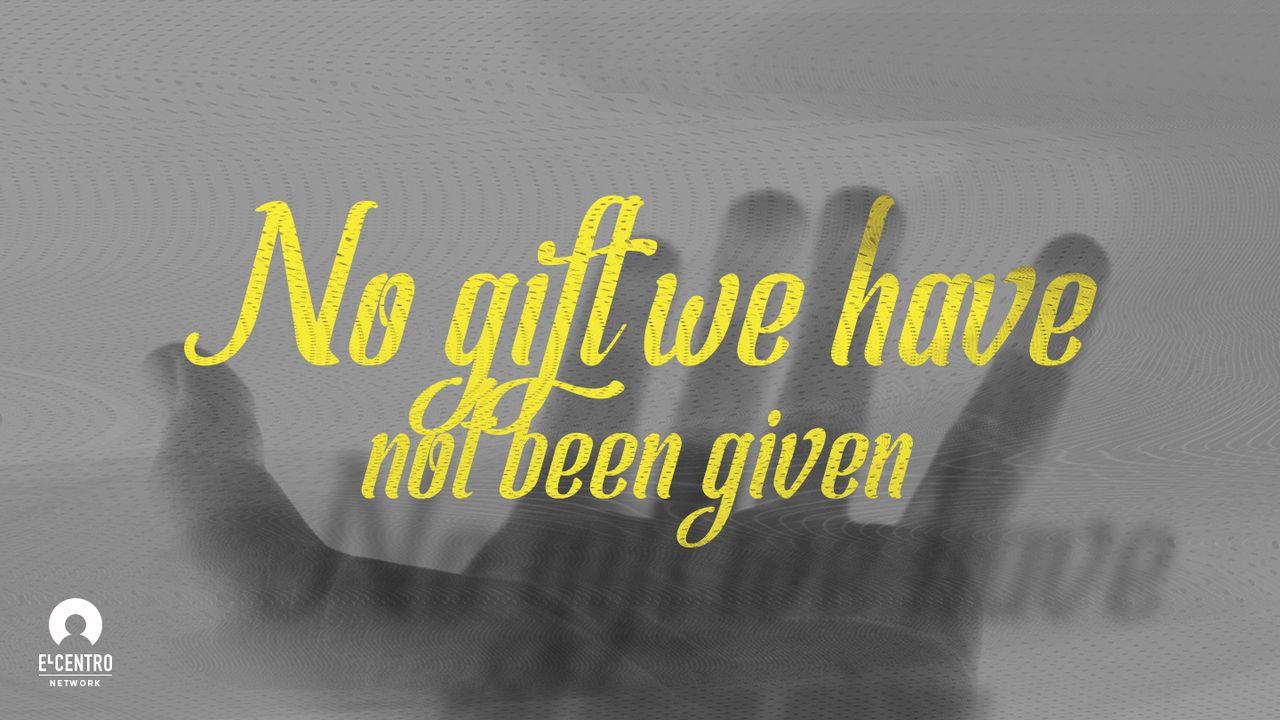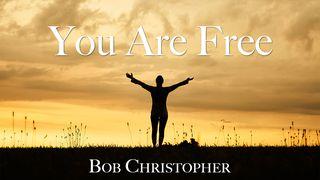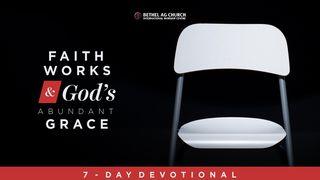No Gift We Have Not Been GivenSample

Slaves Freed
The Roman Empire was full of slaves. In fact, one-third of the people in major cities were slaves. Whenever a slave was purchased, the Greek word for “redemption,” found in our verse, was used to describe the transaction.
The Bible says that God redeemed us in Jesus Christ and purchased us out of our slavery. We were all slaves to sin (we couldn’t help but sin), and God purchased us and set us free. And what was the purchase price of our redemption? The blood of Jesus. No amount of money could set an eternal soul free. No amount of religion, good works, or striving. Only the blood of Jesus.
Perhaps one hymn says it best:
“What can wash away my sin?
Nothing but the blood of Jesus.”
But why? Why is the price so high for the blood of God’s own Son—the blood of God?
It’s simple: God is a holy God. Sin is not ignored or dismissed lightly. Sin must be paid for by death. The Bible says that “The wages of sin is death” (Rom. 6:23a), and “Without the shedding of blood there is no forgiveness of sins” (Heb. 9:22b).
Blood must be shed, either our blood or that of a substitute.
Someone must die.
God says to us: “I will die. I will come to earth and become a human being so I can die. I will die for you.”
That’s the answer to our sin problem. A death.
The answer to our sin problem is not trying harder, feeling guilty, religious performance, or determination to do better. God’s answer to sin is the death of a substitute.
In The Body, Charles Colson tells the story of Father Maximilian:
In February 1941, Father Maximilian Kolbe was arrested by the Gestapo and sent to Auschwitz. He was a Polish monk who founded a Franciscan order near Warsaw called the Knights of the Immaculate. Eventually, he was assigned to Barracks 14 where he continued to minister to his fellow prisoners. He would nod his understanding as men poured out their hearts. Then he would raise his emaciated arm and make the sign of the cross in the foul air of the packed barracks. The cross, he thought. Christ’s cross has triumphed over its enemies in every age. I believe, in the end, even in these darkest days in Poland, the cross will triumph over the swastika. I pray I can be faithful to that end. Then one night a man escaped from Barracks 14. The next morning there was tension as the ranks of phantom-thin prisoners lined up for roll call in the square. Afterwards, Commandant Fritsch ordered the dismissal of all but Barracks 14, who were forced to stand still in the hot sun all day long. By evening the commandant would make a lesson out of the fate of this miserable barracks. “The fugitive has not been found. Ten of you will die for him in the starvation bunker!” he screamed. Anything was better—death on the gallows or even the gas chambers; this method forced one to go without food and water until death. After the ten were chosen, the cry rang out from one of the men in the group, “My poor children! My wife! What will they do?” Suddenly there was a commotion in the ranks. A prisoner had broken out of ranks and volunteered to take this crying man’s place. It was Father Kolbe. The frail priest spoke softly, even calmly, saying, “I would like to die in place of one of the men you condemned.”
The commandant ordered it done, and the ten were marched to Barracks 11 where they would spend the last of their days.
As the hours and days passed, the camp became aware of something extraordinary happening in the death cell. Past prisoners had spent their dying days howling and attacking one another in a frenzy of despair. But now, those outside heard the faint sound of singing. For this time the prisoners had a shepherd to gently lead them through the shadows of the valley of death, pointing them to the great shepherd.
Franciszek Gajowniczek was the prisoner whose life was spared. He survived Auschwitz and for 53 years—until his death at age 95—he joyously told everyone about the man who had died in his place.
Jesus is the one who died in your place.
Scripture
About this Plan

In Paul’s letter to the Ephesians, he addresses many questions to the church about the nature of their relationship with their Savior. How should believers see themselves, and how can we understand God’s grace to us? These selections from Ephesians 1 are a reflection on the blessings and the hope of God’s children who have been adopted, chosen, freed, redeemed.
More
We would like to thank Jeff Wells in partnership with El Centro Network for providing this plan. For more information, please visit: http://www.jeffhwells.com and http://elcentronetwork.com









